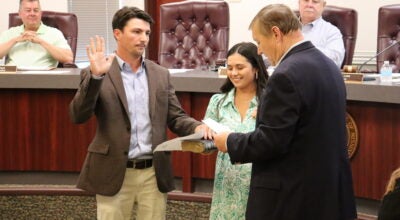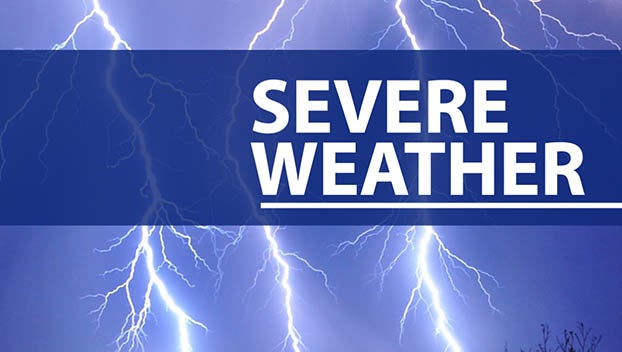Today is April 30, 2021
Published 7:00 am Friday, April 30, 2021
On April 30, 1789, George Washington was “humbled” when he was elected America’s first president, according to the Library of Congress. Washington “delivered the speech in a deep, low voice that betrayed what one observer called ‘manifest embarrassment’.”
He conveyed his Federal Hall remarks in the nation’s New York City capital. They were somewhat brief and fixated on the passage of the Bill of Rights. He had no obligation to deliver a message, other than to take his oath of office, but with that gesture, he set a precedent to address the nation — a tradition observed by every president since.
Washington was the Chief Executive two consecutive, four-year terms.
The Grateful American Book Prize recommends George Washington and the Founding of a Nation by Albert Marrin
**
International Jazz Day
Influential jazz musicians
Tracing its origins to African American communities in New Orleans, jazz has grown from its humble beginnings in the late 19th and early 20th centuries to become popular across the globe. As the popularity of jazz grew and the genre spread beyond New Orleans, different styles emerged, giving rise to Kansas City jazz, cool jazz, free jazz, and other forms. Along the way, various musicians have put their own unique stamp on jazz. The following are just a handful of the many influential jazz musicians who have helped to elevate this unique genre of music to one of the most popular in the world.
- Jelly Roll Morton (1890-1941): New Orleans native Jelly Roll Morton, a pianist and songwriter, honed his piano-playing abilities in the bordellos of the Big Easy. In fact, it was in those establishments where the man born Ferdinand Joseph Lamothe earned his distinctive nickname. Biography.com notes that while his claims to have been the inventor of jazz might have been dubious, Morton is considered to be the first jazz musician to commit his arrangements to paper.
- Scott Joplin (c. 1868-1917): Born into a musical family that included his mother, a singer and banjo player, and his father, a violist, Scott Joplin grew up in Texarkana, learning to play the guitar and later the piano at a very young age. By the time Joplin was a teenager, he was working as a traveling musician and eventually became the foremost composer of ragtime jazz. Biography.com notes that Joplin was a true student of music, studying at the George R. Smith College for Negroes in Missouri during the 1890s. Though one of history’s most celebrated jazz musicians, Joplin also composed ballets and operas.
- Bessie Smith (1894-1937): While there are female instrumentalists in the genre of jazz, in the early days many, such as Bessie Smith, were vocalists. Born in Chattanooga, Tennessee, Smith would come to be known as “Empress of the Blues” thanks to her powerful voice. By the 1920s, Smith was among the highest paid black performers. Tragically, Smith’s life was cut short when she died from injuries sustained in a car crash on her way to a show in Memphis in 1937.
- Miles Davis (1926-1991): Compared to other jazz legends, Illinois-born Miles Davis was introduced to music rather late. It wasn’t until Davis was 13 years old that his father introduced him to the trumpet, an introduction that would dramatically alter the course of jazz music. Under the tutelage of local music school director Elwood Buchanan, Davis learned to play the trumpet without vibrato, which Biography.com notes marked a departure from the style of trumpet-playing popular at the time. A true pioneer, Davis is considered one of the most influential figures in the history of jazz and 20th century music.
**
Oatmeal Cookie Day
Ingredients
1 1/4 Cup(s) (2-1/2 sticks) margarine or butter, softened
3/4 Cup(s) firmly packed brown sugar
1/2 Cup(s) granulated sugar
1 Egg(s)
1 Teaspoon(s) vanilla
1 1/2 Cup(s) all-purpose flour
1 Teaspoon(s) Baking Soda
1 Teaspoon(s) ground cinnamon
1/2 Teaspoon(s) salt (optional)
1/4 Teaspoon(s) ground nutmeg
3 Cup(s) Quaker® Oats (quick or old fashioned, uncooked)
Cooking Instructions
Heat oven to 375°F. In large bowl, beat margarine and sugars until creamy. Add egg and vanilla; beat well. Add combined flour, baking soda, cinnamon, salt and nutmeg; mix well. Add oats; mix well. Drop dough by rounded tablespoonfuls onto ungreased cookie sheets. Bake 8 to 9 minutes for a chewy cookie or 10 to 11 minutes for a crisp cookie. Cool 1 minute on cookie sheets; remove to wire rack. Cool completely. Store tightly covered.
Serving Tips:
Bar Cookies: Press dough onto bottom of ungreased 13 x 9-inch baking pan. Bake 25 to 30 minutes or until light golden brown. Cool completely in pan on wire rack. Cut into bars. Store tightly covered.
24 BARS
Variations:
- Stir in 1 cup raisins or chopped nuts.
- Omit spices; stir in 1 cup semi-sweet chocolate chips, butterscotch chips or peanut butter-flavored chips.
For more recipes visit https://www.quakeroats.com/.




